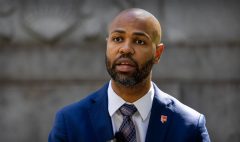Islamophobia has gained a foothold in UK
August 18, 2024 2024-08-26 17:07Islamophobia has gained a foothold in UK
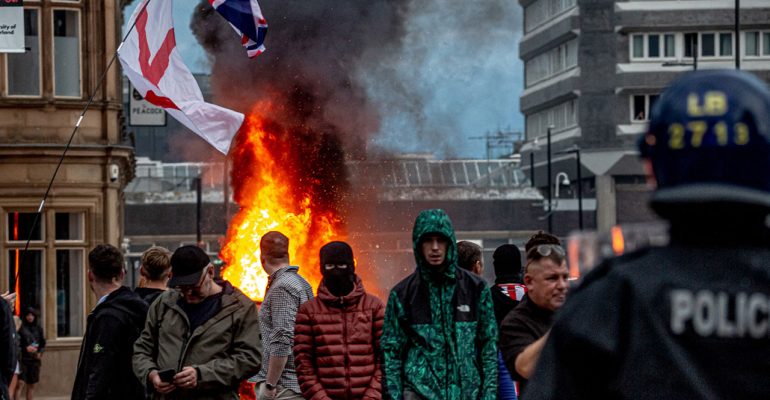
Islamophobia has gained a foothold in UK
The riots confirmed what Muslims have known for some time. Too many powerful voices have accepted, or even encouraged, hatred
Last week, as far-right thugs targeted Muslims primarily, the former Conservative immigration minister Robert Jenrick told Sky News that saying “Allahu Akbar” —“God is greater”— in public should be an arrestable offence. This is a solemn phrase millions of British Muslims use daily.
Jenrick’s Islamophobia received no pushback from the interviewer, no response from his party leader, and led to no apology: a stark reflection of how Islamophobia has become acceptable, not just on the far right, but also in mainstream media and politics.
What makes it even worse is the context of his comments.
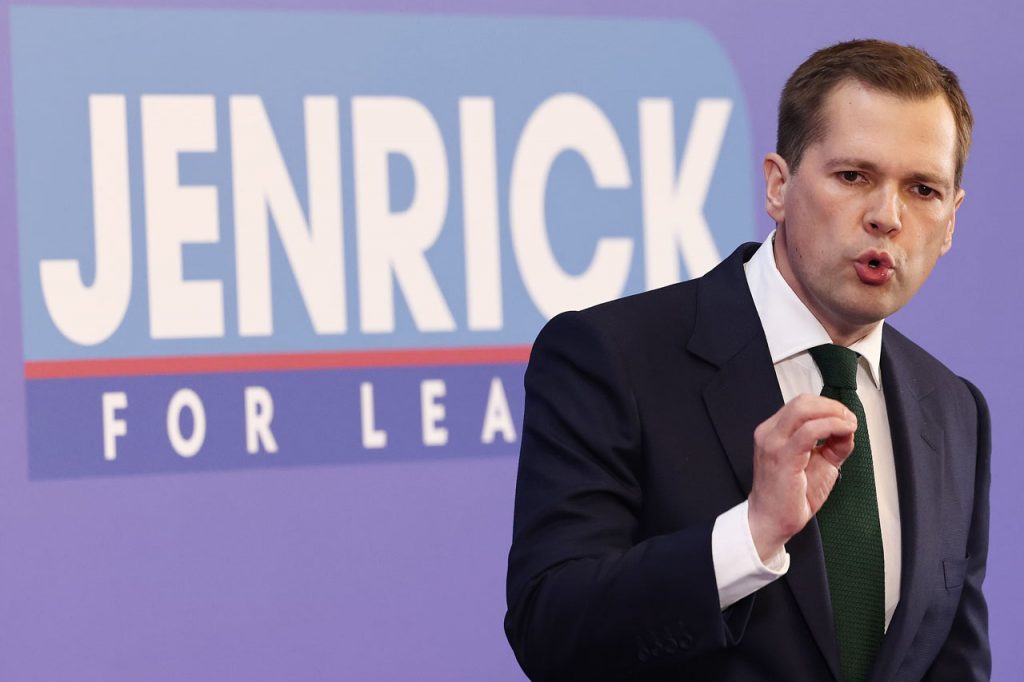
In Southport, a mob hurled bricks at a mosque, causing one worshipper, trapped along with the imam, to think he might die. Others attempted to set fire to a hotel in Rotherham used to house asylum seekers. Far-right thugs stopped cars in Middlesbrough to check if their drivers were white before letting them pass. A “large group of men” beat up a black man in Manchester, and a Muslim man was stabbed at a train station in Liverpool. In Hull, violent far-right rioters dragged an Asian man out of his car, while racially abusing him by repeatedly yelling “P**i”. Others shouted “fuck Muslims” in a “demonstration”, children were found screaming “who the fuck is Allah?” and other children joined their parents shouting “P***s out”. And some attacked an Islamic book stall in Liverpool, whilst others vandalized Muslim graves in Burnley.
There was a similar story online. According to researcher Marc Owen Jones, on X,65 per cent of impressions earned by posts about Muslims between 28th July and 9th August (155m impressions) were anti-Muslim or anti-migrant.
The appalling scale of the far-right thuggery led to a palpable and justifiable fear among Muslims and minority communities across the country. Even Humza Yousaf, former first minister of Scotland, shared that the riots made him question whether he and his family would remain in the UK. And the mayor of London Sadiq Khan shared that he did not feel safe as a Muslim politician in the wake of the riots.
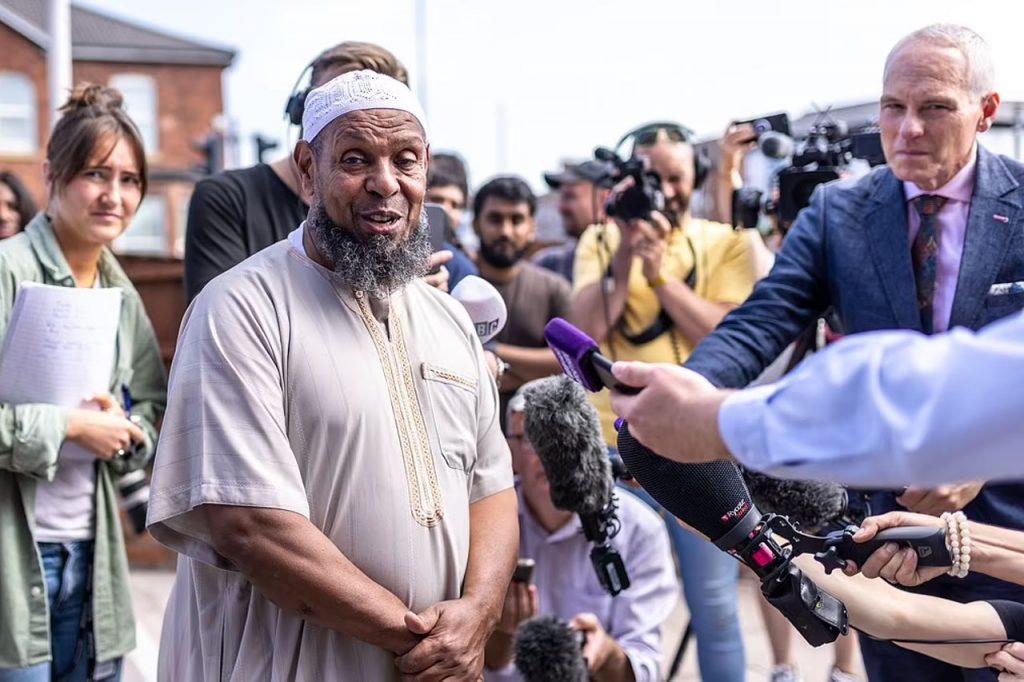
In this environment, Jenrick felt confident in pushing out his hate and divisiveness. He was not alone. Elon Musk shared—and then deleted—a false post from the co-leader of the far-right Britain First party about the UK building “detainment camps” for rioters, and proclaimed that civil war in the UK was “inevitable”; Matthew Goodwin seemed to suggest that a “son of immigrants” is not really British; and Nigel Farage called “some of the actions” of far-right rioters “truly disgusting”—but also appeared to excuse rioters, saying it was “a reaction to fear, to discomfort, to unease that is out there shared by tens of millions of people.”
Certain news outlets followed suit. The Daily Telegraph headlined its front page “Far-right clash with Muslims in rioting”, and ran a host of frankly embarrassing and repulsive articles; and GB News consistently seems to be trying to make excuses for the far right.
You might argue that they are targeting the 34 per cent of Conservative party voters and 63 per cent of Reform voters who blamed Muslims for the riots.
Perhaps. But I think it goes deeper.
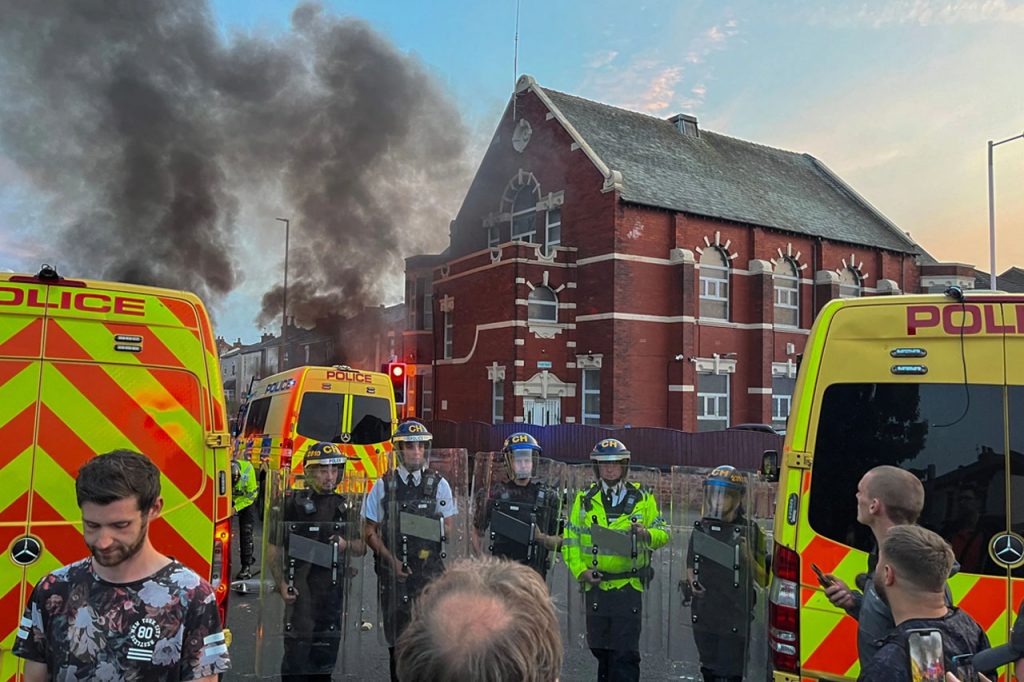
Too many people in positions of power have, for too long, denied Islamophobia, or outright encouraged it.
Let us not forget the rampant Islamophobia in the Conservative party: from Boris Johnson comparing Muslim women to “letterboxes”, which led to a 375 per cent rise in hate crime against Muslim women, to former culture secretary Nadine Dorries and current MP Bob Blackman retweeting Tommy Robinson.
Let us not forget the negative coverage of Muslims in the UK media, in which stereotypical tropes about them are regularly propagated. The editor of the Daily Express even admitted that the paper helped create “Islamophobic sentiment”. Research by the UNHCR found the Daily Mail and the Sun showed a hostility towards migrants that was “unique” among the newspapers they sampled.
There is a reason why approximately a third of the UK population endorse casual prejudices such as “Islam is a religion of violence” or “Muslims will never be as British as other British people”.
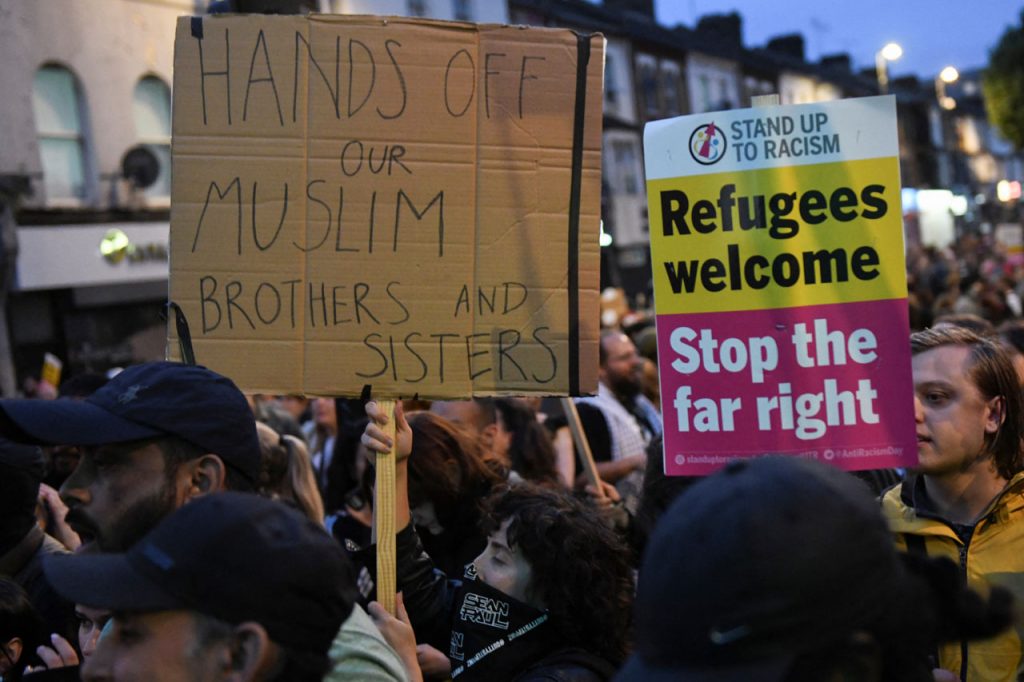
While we have seen fantastic examples of community, solidarity and allyship against racism, even belatedly from some of its worst perpetrators, we cannot get away from the fact that far-right Islamophobia has gained a public foothold.
And removing this foothold is not straightforward. It requires a reflection on the power dynamics and drivers of Islamophobia (and other forms of bigotry) in our society. There are some community-based and education-centric solutions, but there also needs to be a concerted effort to tackle it both from the very top, where influence sits.
In practice, this means (finally) appointing an Islamophobia adviser with support from Muslim communities to focus on the issue; adopting the APPG definition of Islamophobia—that it is “rooted in racism and is a type of racism that targets expressions of Muslimness or perceived Muslimness”—as part of a broader effort to embed an understanding of this kind of racism in society; and implementing measures requiring social media giants to refer breaches of the law to local police, as well as to monitor and penalize clear cases of incitement to racial or religious hatred.
It’s time to turn words into action, and to ensure that Islamophobia is challenged. The question is, do we have the will to do it?
Source: Prospect Magazine




